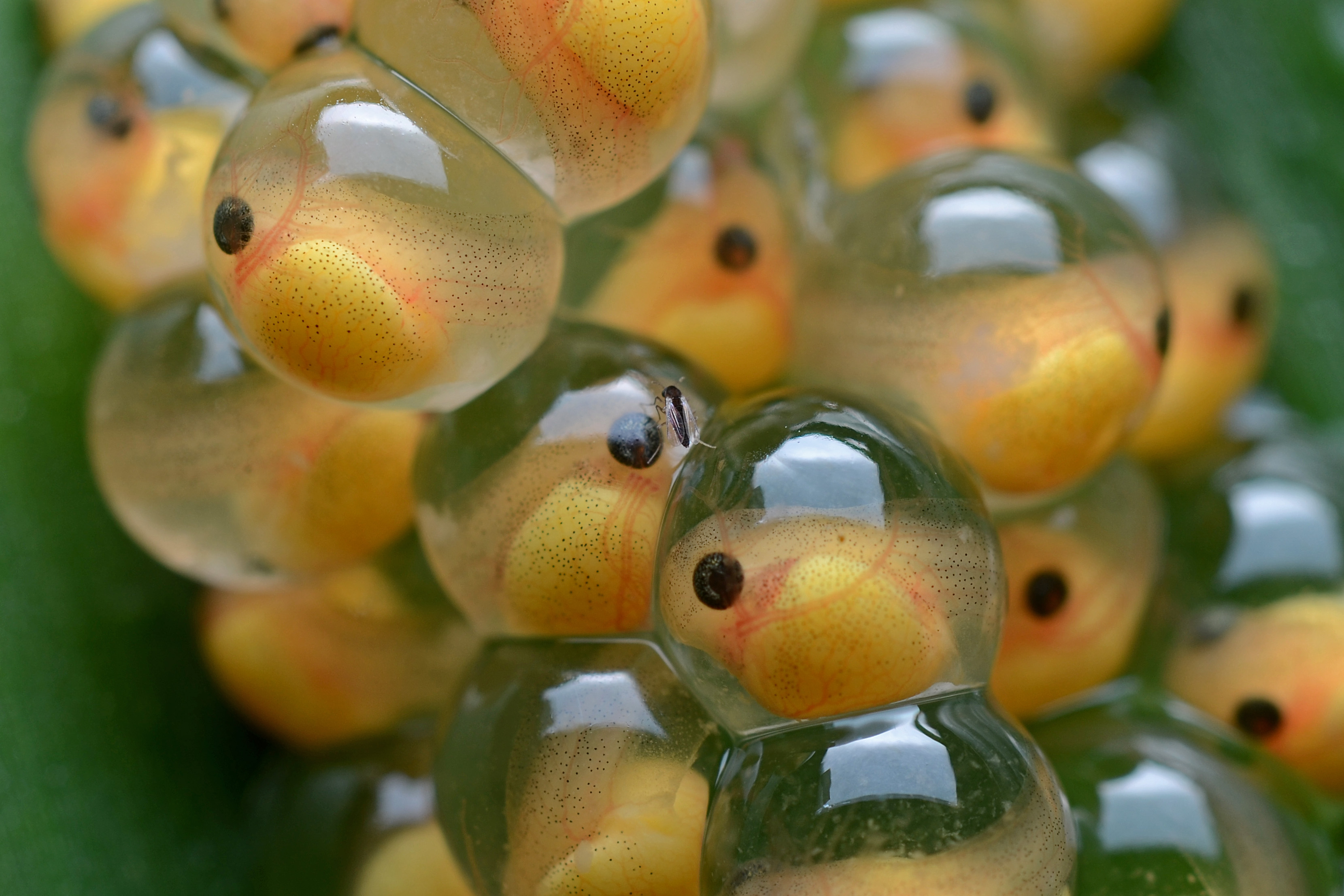Happy Father’s Day: Five best dads in the animal kingdom

From cuckoos to seahorses, toads to beetles, these dads are the best
Published 4 September 2015
Fathers come in all shapes, sizes, colours and number of legs. To celebrate Father’s Day, we asked animal behaviour researchers Dr Sebastian Pohl and Professor Mark Elgar to name the best dads in the animal kingdom.
1. Mid-wife toad
Being a good dad can mean taking time out from your busy schedule to spend time with your kids, or eggs. Professor Elgar says the mid-wife toad is a great example of selfless male care: “Unlike most other frogs and toads, the female doesn’t lay her eggs in water but rather on the back legs of the male. After fertilising the eggs, he hooks them around his legs like a pair of shorts and then finds a safe place under a rock, where he keeps the eggs moist and safe for several weeks. Eventually, he must find a pond of water for the hatching tadpoles.’’
Dr Pohl says that some Poison Dart Frog dads go a step further. “They first guard the eggs which the female laid on a leaf for example, and then transport the freshly hatched tadpoles on their back to small water pools. They continue to guard their offspring and will call the female to lay trophic eggs when the tadpoles need to be fed.”
2. Seahorses
It’s considered kind of non-negotiable that mums are the ones that give birth, but there’s always an exception to the rule.
“There are many ways in which the males care for these offspring, although arguably the most impressive are the pipefish and seahorses, who place the eggs in their pouch, and the little fry swim out after hatching,” says Professor Elgar.
“Male seahorses, for some inexplicable reason, have cornered the market in the ‘best dad’ stakes, but it’s hard to know whether theirs is an act of selflessness or simply being out-maneuvered by females.”
3. Burying beetle
You wouldn’t think insects would give much thought to their fatherly duties, but Dr Pohl says that burying beetles do.
“Male burying beetles will help the female prepare a small carcass (for example a mouse or a bird) for the offspring, and will stay in the vicinity of the brood for several days, defending the offspring, while the female helps the beetle larvae feed by regurgitating predigested food,” says Dr Pohl.
“In the absence of the female, the male can also resume the female’s duties and feed the larvae.”
4. Cuckoo
This one is a bit controversial, but Professor Elgar says that by one definition of good fathering, the cuckoo is a pro.
“For example, we might follow the sage commentary of popular, though controversial, English poet Philip Larkin about the role of parents,” says Professor Elgar.
Man hands on misery to man. / It deepens like a coastal shelf. / Get out as early as you can, / And don’t have any kids yourself.
“There are numerous species in which the male abandons his responsibilities and leaves all of the parenting to the female. Choosing among these species is going to be subjective, but I think the male cuckoo most impressively adopts Philip Larkin’s advice. Not only does he get out fast (disappearing after he has mated with a female), but he also ensures that any learned parental defects of his mate are not passed on because his offspring are raised by foster parents of another species.”
5. Praying mantis
To find the ultimate dad, what we need is the ultimate sacrifice, and Professor Elgar says the best example of this can be seen in the males of a few select species of praying mantis.
“In these species, the female consumes the male during copulation, and his body is generously transformed into producing more, and more viable, eggs that he has – hopefully – sired.”
This seems harsh, but it’s not all bad news for the male mantis. As Sir David Attenborough says in the video above: “A decapitated male can carry on mating for several hours.”
So there you have it. Whether giving birth, raising their kids as a single dad, bringing home the bacon (or mouse), dying to be a dad or just giving their kids over to someone more qualified to raise their children, dads are the best.
Banner image: Geoff Gallice via Wikimedia commons(CC BY-NC-SA 2.0)

